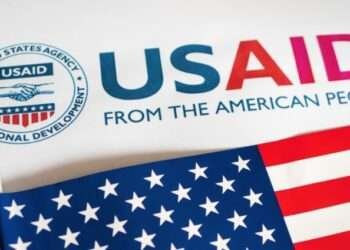The World Bank’s Country Director for Ghana, Mr. Pierre Frank Laporte has emphasized that Ghana is not a HIPC country. According to him, even though the country is classified as being high distress, it cannot be classified as HIPC.
Mr. Pierre Frank Laporte made this clarification while speaking on ‘the Role of the World Bank in reviving Ghana’s economy’ on PM express in Accra on Thursday night.
“I will say once to everybody categorically; Ghana is not a HIPC country. HIPC is a Highly Indebted Poor Country. But a country at high risk of debt distress doesn’t mean it’s a HIPC country, that is very important”.
The recent Data from the central bank puts the debt to GDP ratio at 68.3 % but the World Bank’s Country Director for Ghana states that this is not enough to classify it as high debt country.
He cited Mauritania, Cape Verde as among High debt countries in Africa with debt to GDP ratio either near or above 100%.
He explained that the HIPC was an initiative a long time ago by developing partners and bilateral organizations to come together to save countries in Africa and the rest of the world that have very high debt levels.
“We want to help these countries. So what we do is to forgive part of their debts subject to certain conditions. Ghana reached completion point many years ago and after that Ghana is no longer a HIPC country”, he reiterated.
He further clarified that before a country is declared as being in debt distress, the World Bank conducts the stress tests to examine how vulnerable a country is when exposing to shocks.
“Because Ghana is a country that relied on petroleum exports, if prices are crashed, how will that impact on the country’s ability to pay its debts? So, in this case, it’s a high risk”.
He pointed out that since Ghana relied so much on exports of primary commodities, the stress test will indicate how Ghana will be able to pay its debt if prices should drop sharply. These according to him are indicators that point to the fact that Ghana is at a high risk of debt distress.
“…Already debt level as a percentage of GDP is high, but it doesn’t mean the country is a high debt distress country”.
He further stated that, even though there are risks, he doesn’t believe Ghana is a high distress country. Because a critical look at the country’s debt structure shows that a large proportion of Ghana’s debt is to multilateral like World Bank, IMF and bilateral like EU. These debts, he noted, are generally long term debts so the risk is minimized.
Secondly, he pointed out that another important component of Ghana’s debt is the financial market. He stated that the financial market varies over time depending on certain factors. “But in this COVID time the market was quite liquid and there is always money there”.
He, however, cautioned that even though Ghana has maintained some level of stability in the financial market, the crises still pose some risk for Ghana in making the financial market stable.
He noted that a key factor in the recovery process for Ghana is macroeconomic stability.
“I believe that when things are normalized, things will be better for Ghana. But a critical point is that we have to go back to macro-economic stability”.
Mr. Pierre Frank Laporte also pointed out that the first thing to do when developing a strategy is to make sure that you have macroeconomic stability. According to him, you don’t need to worry yourself about overspending or your deficit rising to higher levels when you have macroeconomic stability because it allows you to maintain your debt level.
He added that, macroeconomic stability also boosts the confidence of investors to invest in the economy. When investors look at Ghana, they will say this a country that the macroeconomic situation is good, we see that they are managing the economy well.
“The indicators are positive especially inflation is coming down, deficits under control and unemployment is very low, and domestic revenue mobilization is very strong. Then they will come. So, if Ghana can maintain some macroeconomic stability, I don’t see things going bad”.
With regards to borrowing, Mr. Pierre Frank Laporte believes that Ghana has not borrowed too much. But noted that the country is approaching the threshold and so when it continues to borrow it will be very disastrous. He admonished Ghana to beef-up domestic revenue not necessarily increasing taxes but looking for better and innovative ways of raising substantial domestic revenues since Ghana’s revenue mobilization is among the lowest in the Sub-region.





















